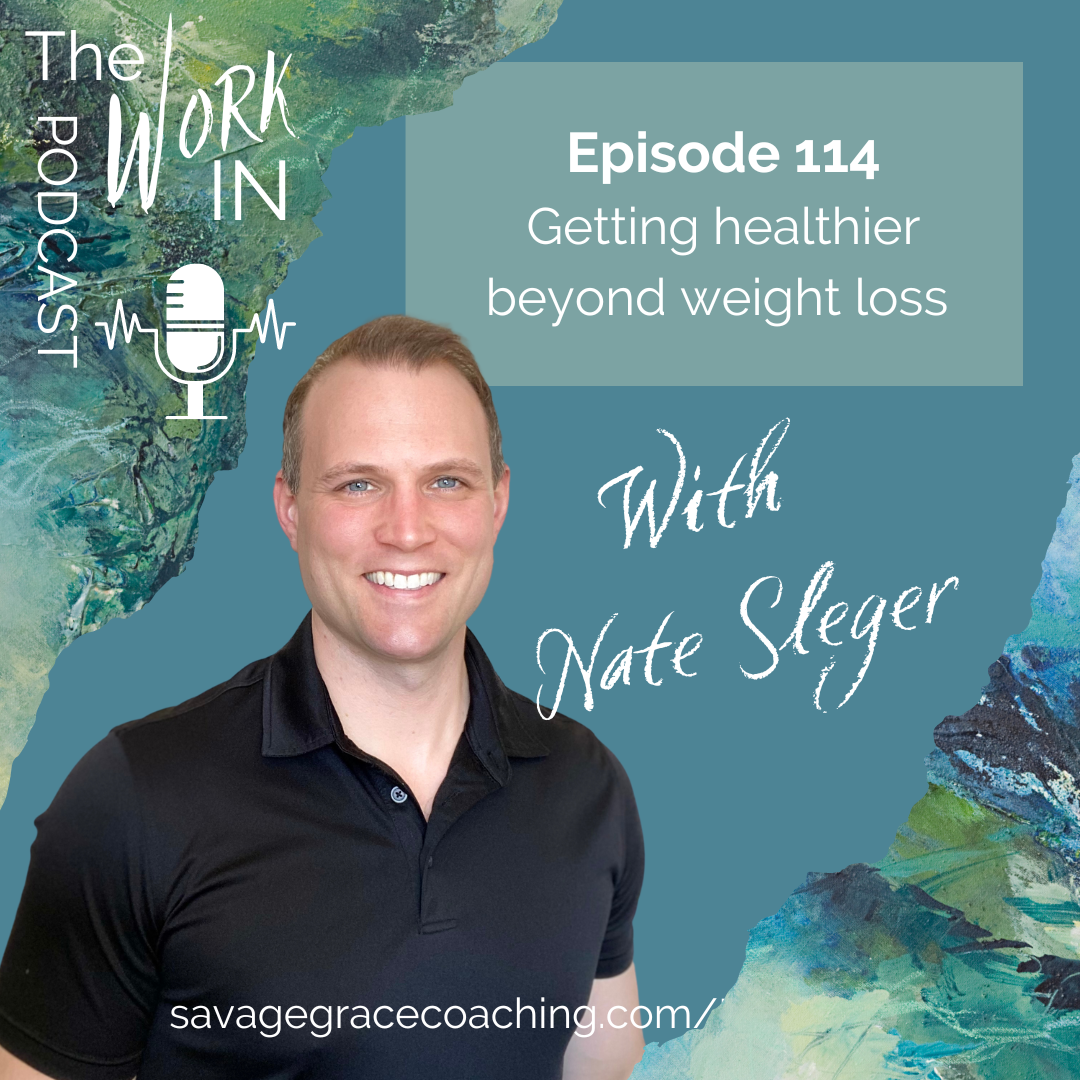
Welcome to The Work IN!
Trauma informed: What is it and why you should be
Trauma informed. It sounds good but that term isn’t well understood by the general public and has been diluted by the wellness community by click bait, quick buck certifications. There’s an assumption that because yoga is often recommended for ptsd, chronic pain, anxiety and depression that any and all yoga is trauma informed and that is simply not true. Today on The Work IN we’re taking a look at what being trauma informed means, what it looks like in yoga classes and why it’s something that all fit pros should understand. Today's discussion is going to focus on yoga but it applies across the fitness industry to all formats.
Decoding trauma science for fit pro’s
In the trauma-informed space where movement, mental health and western medicine overlap, there is an expectation that as a wellness professional we are up to date on the latest science and most effective ways to help people optimize their health. There’s an assumption in the US that we have proof of efficacy for all of our favorite mind body modalities through double blind controlled studies. The truth is the space between eastern and western medicine is filled with hope and unanswered questions. Today on the work IN we’re discussing some of the difficulties with getting hard science when it comes to mind body modalities and what we do with answers that aren’t what we hope for.
Best of replay Interpreting chronic pain science with Colleen Jorgensen
In this Best of Replay my guest is a long time friend of The Work IN. There are so many frustrating things about health and wellness information. As fitness professionals and coaches we watch for the latest information in science and do our best to curate and explain it to our clients and students. As consumers of that information, it can be so confusing to try to understand what the latest science actually means for our day to day lives, and for a topic as complex as chronic pain, that becomes even more challenging. On the one hand, it's great to get new science, new understanding about the body and the nervous system so we can make the best choices in our care. On the other hand, what does that mean for everything that we knew before? does it all go out the window? How do we how do we integrate that new understanding of pain care science in meaningful ways, and share it when it comes to posture, alignment and movement therapy? My friend Colleen Jorgensen reached out to me a few weeks ago with this question as a topic for the podcast. And I thought it was a really great idea. I love bringing clarity to topics like this and I always learned so much from Colleen. She's been on the podcast before. We've talked about chronic pain, the nervous system pain care where language and the importance of professional communication skills. She's an osteopath, the yoga Pilates instructor and a teacher trainer was specialties in pain care where language among many other skills and she is the one I trust to help translate some of this new information. I am thrilled to have Colleen back on the podcast to talk more about this topic. And I think in the course of the conversation, we can find new ways to evaluate other areas of health and wellness science as well. So let's start our work. In with Colleen Jorgensen. Welcome back Colleen.
Getting healthier beyond weight loss with Nate Sleger
In this Best of Replay my guest is Nate Sleger. He's a speaker, author and fitness industry expert, who has had his start as a personal trainer and and a nutrition coach. He's the host of the begin with podcast, where he interviews experts to uncover the behind the scenes of fitness, motivation and lasting results. Nate is also the founder and operator of begin within fitness. A 100% online personal training and nutrition coaching studio designed to remove barriers to fitness and make it easy. Today we're going to be talking about how to lift the pressure and stress of prescriptive fitness and how trauma informed principles overlap when it comes to maintaining long term health habits. Part of being a trauma informed FitPro is understanding that we are really teaching our clients to be trauma informed for themselves, helping them build their own awareness. So they can get the results they want. After all, they are the ones who have to do the work. And that can't happen if we overwhelm them right out of the gate. And it really can't happen if we ourselves don't have an integrated self regulation practice to share. So today let's get right to our work in with Nate Slager. Nate, thank you so much for joining me on the work in
Trauma Release Exercise with Donna Phillips replay
Today I'm so excited to bring you a very special interview with my trainer and mentor, Donna Phillips. Donna has over 30 years of experience in the health care, wellness and medical industries. She has degrees in exercise physiology, business and holds advanced certifications in both yoga and pilates. She's an outstanding teacher. But what makes her really unique, and why I wanted to introduce her to you today, is that she also happens to be a trauma release exercise certification trainer.
She is passionate about bringing trauma release exercise to the world as a way to safely self regulate stress tension and trauma. We're going to learn a little bit more about what trauma release exercise is, what it does for the body, how it can help us connect and reestablish a friendly relationship within ourselves and safely down regulate the nervous system, so that we can really experience our lives to the fullest.
Hypervigilant helicopter parenting: How to land that bird and reconnect with your kids
What I’d like to highlight in today’s episode has to do with how our hypervigilant state of protection prevents us from emotionally connecting and bonding with the people who we are trying to protect. Especially our kids but this also applies to pretty much any relationship.






